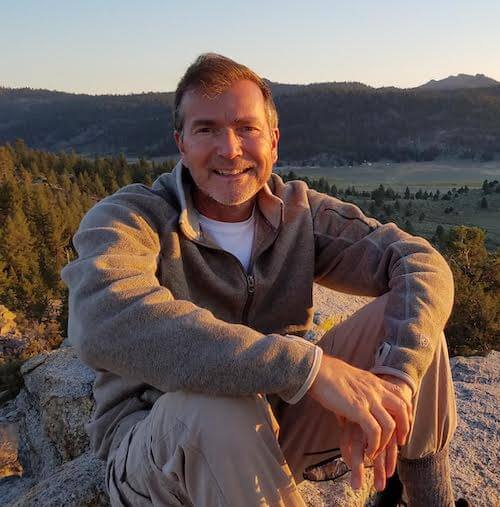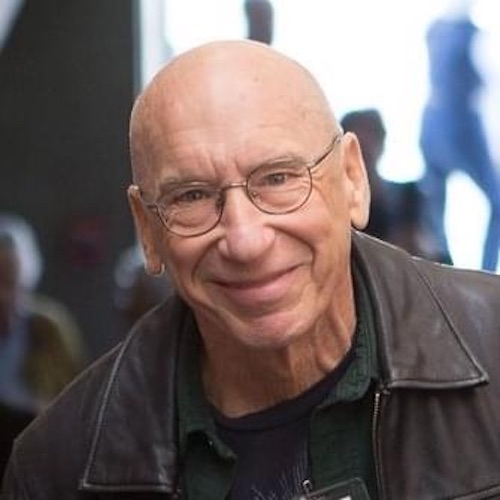
This question is harder than it may seem: are you at home within yourself? Ah. Yes, that one takes my breath away every time, no matter how often I ask myself that question. One thought that may resonate is that being at home within yourself is a constantly shifting practice. Would you agree?
Guidance, sometimes divine guidance (whatever the “divine” means for you), can help us course-correct when we’ve veered way off course or spent time on a journey outside our comfort zone (imho, a good thing).
Hannah Muse, international yoga and meditation teacher, is deeply connected to the Divine Abodes (in Sanskrit, the brahmavihārās), often referred to as the “four immeasurables.” Through these concepts, we can find ourselves in our “best homes — the place we are most at ease, most ourselves, most authentic,” she said.
Brahma means supreme, celestial, divine, or best; vihara means dwelling, abiding, or home. Muse says, they “can help us find a home for ourselves in this world.”
In advance of her workshop, my fellow yoga teacher Hannah Muse took a moment to share how we can practice the brahmavihārās and come home.
Christine Chen: Would you break down each of the brahmavihārās for us, starting with metta, and how we might practice them each day?
Hannah Muse: Metta is loving kindness, an unconditional friendliness of the Self and all beings. One way to practice metta is to acknowledge that, however alone we might feel, the truth is, we are part of a bigger fabric of life. This quote by Bell Hooks is a reminder of how to weave metta into each moment: “Love is a verb, not a noun.”
CC: Can you share how metta shifted your perspective and changed your course of action?
HM: “When I first was introduced to metta, my inner skeptic wondered if it was a bit too “hallmark” for me — I had experienced intense loss and was processing a lot of anger and grief at the time. And Metta just seemed so sweet. I’m so glad I gave it a chance because I soon discovered that Metta was THE practice that allowed all parts of me to sit at the table (or on the cushion): my broken heart, my seeds of hope, my full humanity — they all got to show up in a way that some of the more esoteric practices (that I also love) didn’t always grant permission.
CC: What was the outcome of that realization in real life?
HM: I forgive myself and others more easily. I take things less personally. I am not afraid of love anymore. I welcome the full holy, human experience with open arms.
CC: Let’s look into the three other abodes: karuna, mudita, upekka…
HM: Karuna, or compassion, is the trembling of our hearts in response to the suffering of others and also ourselves. Be honest with yourself and touch, tenderly, what’s most vulnerable. Allow your heart to be moved, and wish for suffering to be relieved.
CC: Mudita is often considered a little complicated and often challenging…
HM: Mudita, or sympathetic joy, is taking delight in another’s happiness! Yes, it’s often considered a challenge, but it gets easier with practice. Try to see that someone else’s happiness is not a threat to you.
CC: Upekka? We speak of mindfulness, and this builds on it, yes?
HM: Upekka, or equanimity, is the peaceful balance of the mind. Focusing on mindfulness helps us boost this abode into a balanced home practice. Keep showing up to life with an open heart. Wisdom is born through experience. A daily meditation practice will fortify this capacity.
CC: For those just coming to the practice of the Divine Abodes, it’s easy to study them in theory, but in real life, it can be messy, don’t you think?
HM: Oh yes, messiness is more than welcome here! Working with the brahmavihārās is very relational (part of why I love it), so we encounter lots of messiness and imperfection along the way. There’s not really room for spiritual bypass. We have full permission to show up just as we are. As Pema Chodron says, “Everything that’s in the way, is the way.”
CC: I love that you bring up the idea of spiritual bypassing. We have to do the work! What if we already practice these, should we renew and review our relationship with the Divine Abodes?
HM: I don’t know any humans who could practice the divine abodes too much. They are just so helpful, relatable, accessible and applicable to the wondrous, messy, heartbreakingly beautiful human experience. After over a decade of practice, I am constantly getting schooled by these practices. And oh, so grateful to sit as a humble student at the feet of all the loving wisdom these teachings have to share.

“Remembering to be as self compassionate as I can and praying to the divine that we're all a part of.”
–Aaron
“Prayer, reading, meditation, walking.”
–Karen
“Erratically — which is an ongoing stream of practice to find peace.”
–Charles
“Try on a daily basis to be kind to myself and to realize that making mistakes is a part of the human condition. Learning from our mistakes is a journey. But it starts with compassion and caring. First for oneself.”
–Steve
“Physically: aerobic exercise, volleyball, ice hockey, cycling, sailing. Emotionally: unfortunately I have to work to ‘not care’ about people or situations which may end painfully. Along the lines of ‘attachment is the source of suffering’, so best to avoid it or limit its scope. Sad though because it could also be the source of great joy. Is it worth the risk?“
–Rainer


“It's time for my heart to be nurtured on one level yet contained on another. To go easy on me and to allow my feelings to be validated, not judged harshly. On the other hand, to let the heart rule with equanimity and not lead the mind and body around like a master.”
–Suzanne
“I spend time thinking of everything I am grateful for, and I try to develop my ability to express compassion for myself and others without reservation. I take time to do the things I need to do to keep myself healthy and happy. This includes taking experiential workshops, fostering relationships, and participating within groups which have a similar interest to become a more compassionate and fulfilled being.“
–Peter


“Self-forgiveness for my own judgments. And oh yeah, coming to Esalen.”
–David B.
“Hmm, this is a tough one! I guess I take care of my heart through fostering relationships with people I feel connected to. Spending quality time with them (whether we're on the phone, through messages/letters, on Zoom, or in-person). Being there for them, listening to them, sharing what's going on with me, my struggles and my successes... like we do in the Esalen weekly Friends of Esalen Zoom sessions!”
–Lori

“I remind myself in many ways of the fact that " Love is all there is!" LOVE is the prize and this one precious life is the stage we get to learn our lessons. I get out into nature, hike, camp, river kayak, fly fish, garden, I create, I dance (not enough!), and I remain grateful for each day, each breath, each moment. Being in the moment, awake, and remembering the gift of life and my feeling of gratitude for all of creation.”
–Steven
“My physical heart by limiting stress and eating a heart-healthy diet. My emotional heart by staying in love with the world and by knowing that all disappointment and loss will pass.“
–David Z.
Today, September 29, is World Heart Day. Strike up a conversation with your own heart and as you feel comfortable, encourage others to do the same. As part of our own transformations and self-care, we sometimes ask for others to illuminate and enliven our hearts or speak our love language.
What if we could do this for ourselves too, even if just for today… or to start a heart practice, forever?
Deepen your divine connection to yourself with Hannah Muse at her workshop, Metta and the Divine Abodes: Meditation, Yoga, and Wisdom to Live a Better Life, April 11-15, 2022.
Christine Chen is a two-time Emmy winning journalist, best-selling author, California native, and senior teacher of yoga and Ayurveda.

This question is harder than it may seem: are you at home within yourself? Ah. Yes, that one takes my breath away every time, no matter how often I ask myself that question. One thought that may resonate is that being at home within yourself is a constantly shifting practice. Would you agree?
Guidance, sometimes divine guidance (whatever the “divine” means for you), can help us course-correct when we’ve veered way off course or spent time on a journey outside our comfort zone (imho, a good thing).
Hannah Muse, international yoga and meditation teacher, is deeply connected to the Divine Abodes (in Sanskrit, the brahmavihārās), often referred to as the “four immeasurables.” Through these concepts, we can find ourselves in our “best homes — the place we are most at ease, most ourselves, most authentic,” she said.
Brahma means supreme, celestial, divine, or best; vihara means dwelling, abiding, or home. Muse says, they “can help us find a home for ourselves in this world.”
In advance of her workshop, my fellow yoga teacher Hannah Muse took a moment to share how we can practice the brahmavihārās and come home.
Christine Chen: Would you break down each of the brahmavihārās for us, starting with metta, and how we might practice them each day?
Hannah Muse: Metta is loving kindness, an unconditional friendliness of the Self and all beings. One way to practice metta is to acknowledge that, however alone we might feel, the truth is, we are part of a bigger fabric of life. This quote by Bell Hooks is a reminder of how to weave metta into each moment: “Love is a verb, not a noun.”
CC: Can you share how metta shifted your perspective and changed your course of action?
HM: “When I first was introduced to metta, my inner skeptic wondered if it was a bit too “hallmark” for me — I had experienced intense loss and was processing a lot of anger and grief at the time. And Metta just seemed so sweet. I’m so glad I gave it a chance because I soon discovered that Metta was THE practice that allowed all parts of me to sit at the table (or on the cushion): my broken heart, my seeds of hope, my full humanity — they all got to show up in a way that some of the more esoteric practices (that I also love) didn’t always grant permission.
CC: What was the outcome of that realization in real life?
HM: I forgive myself and others more easily. I take things less personally. I am not afraid of love anymore. I welcome the full holy, human experience with open arms.
CC: Let’s look into the three other abodes: karuna, mudita, upekka…
HM: Karuna, or compassion, is the trembling of our hearts in response to the suffering of others and also ourselves. Be honest with yourself and touch, tenderly, what’s most vulnerable. Allow your heart to be moved, and wish for suffering to be relieved.
CC: Mudita is often considered a little complicated and often challenging…
HM: Mudita, or sympathetic joy, is taking delight in another’s happiness! Yes, it’s often considered a challenge, but it gets easier with practice. Try to see that someone else’s happiness is not a threat to you.
CC: Upekka? We speak of mindfulness, and this builds on it, yes?
HM: Upekka, or equanimity, is the peaceful balance of the mind. Focusing on mindfulness helps us boost this abode into a balanced home practice. Keep showing up to life with an open heart. Wisdom is born through experience. A daily meditation practice will fortify this capacity.
CC: For those just coming to the practice of the Divine Abodes, it’s easy to study them in theory, but in real life, it can be messy, don’t you think?
HM: Oh yes, messiness is more than welcome here! Working with the brahmavihārās is very relational (part of why I love it), so we encounter lots of messiness and imperfection along the way. There’s not really room for spiritual bypass. We have full permission to show up just as we are. As Pema Chodron says, “Everything that’s in the way, is the way.”
CC: I love that you bring up the idea of spiritual bypassing. We have to do the work! What if we already practice these, should we renew and review our relationship with the Divine Abodes?
HM: I don’t know any humans who could practice the divine abodes too much. They are just so helpful, relatable, accessible and applicable to the wondrous, messy, heartbreakingly beautiful human experience. After over a decade of practice, I am constantly getting schooled by these practices. And oh, so grateful to sit as a humble student at the feet of all the loving wisdom these teachings have to share.

“Remembering to be as self compassionate as I can and praying to the divine that we're all a part of.”
–Aaron
“Prayer, reading, meditation, walking.”
–Karen
“Erratically — which is an ongoing stream of practice to find peace.”
–Charles
“Try on a daily basis to be kind to myself and to realize that making mistakes is a part of the human condition. Learning from our mistakes is a journey. But it starts with compassion and caring. First for oneself.”
–Steve
“Physically: aerobic exercise, volleyball, ice hockey, cycling, sailing. Emotionally: unfortunately I have to work to ‘not care’ about people or situations which may end painfully. Along the lines of ‘attachment is the source of suffering’, so best to avoid it or limit its scope. Sad though because it could also be the source of great joy. Is it worth the risk?“
–Rainer


“It's time for my heart to be nurtured on one level yet contained on another. To go easy on me and to allow my feelings to be validated, not judged harshly. On the other hand, to let the heart rule with equanimity and not lead the mind and body around like a master.”
–Suzanne
“I spend time thinking of everything I am grateful for, and I try to develop my ability to express compassion for myself and others without reservation. I take time to do the things I need to do to keep myself healthy and happy. This includes taking experiential workshops, fostering relationships, and participating within groups which have a similar interest to become a more compassionate and fulfilled being.“
–Peter


“Self-forgiveness for my own judgments. And oh yeah, coming to Esalen.”
–David B.
“Hmm, this is a tough one! I guess I take care of my heart through fostering relationships with people I feel connected to. Spending quality time with them (whether we're on the phone, through messages/letters, on Zoom, or in-person). Being there for them, listening to them, sharing what's going on with me, my struggles and my successes... like we do in the Esalen weekly Friends of Esalen Zoom sessions!”
–Lori

“I remind myself in many ways of the fact that " Love is all there is!" LOVE is the prize and this one precious life is the stage we get to learn our lessons. I get out into nature, hike, camp, river kayak, fly fish, garden, I create, I dance (not enough!), and I remain grateful for each day, each breath, each moment. Being in the moment, awake, and remembering the gift of life and my feeling of gratitude for all of creation.”
–Steven
“My physical heart by limiting stress and eating a heart-healthy diet. My emotional heart by staying in love with the world and by knowing that all disappointment and loss will pass.“
–David Z.
Today, September 29, is World Heart Day. Strike up a conversation with your own heart and as you feel comfortable, encourage others to do the same. As part of our own transformations and self-care, we sometimes ask for others to illuminate and enliven our hearts or speak our love language.
What if we could do this for ourselves too, even if just for today… or to start a heart practice, forever?
Deepen your divine connection to yourself with Hannah Muse at her workshop, Metta and the Divine Abodes: Meditation, Yoga, and Wisdom to Live a Better Life, April 11-15, 2022.

This question is harder than it may seem: are you at home within yourself? Ah. Yes, that one takes my breath away every time, no matter how often I ask myself that question. One thought that may resonate is that being at home within yourself is a constantly shifting practice. Would you agree?
Guidance, sometimes divine guidance (whatever the “divine” means for you), can help us course-correct when we’ve veered way off course or spent time on a journey outside our comfort zone (imho, a good thing).
Hannah Muse, international yoga and meditation teacher, is deeply connected to the Divine Abodes (in Sanskrit, the brahmavihārās), often referred to as the “four immeasurables.” Through these concepts, we can find ourselves in our “best homes — the place we are most at ease, most ourselves, most authentic,” she said.
Brahma means supreme, celestial, divine, or best; vihara means dwelling, abiding, or home. Muse says, they “can help us find a home for ourselves in this world.”
In advance of her workshop, my fellow yoga teacher Hannah Muse took a moment to share how we can practice the brahmavihārās and come home.
Christine Chen: Would you break down each of the brahmavihārās for us, starting with metta, and how we might practice them each day?
Hannah Muse: Metta is loving kindness, an unconditional friendliness of the Self and all beings. One way to practice metta is to acknowledge that, however alone we might feel, the truth is, we are part of a bigger fabric of life. This quote by Bell Hooks is a reminder of how to weave metta into each moment: “Love is a verb, not a noun.”
CC: Can you share how metta shifted your perspective and changed your course of action?
HM: “When I first was introduced to metta, my inner skeptic wondered if it was a bit too “hallmark” for me — I had experienced intense loss and was processing a lot of anger and grief at the time. And Metta just seemed so sweet. I’m so glad I gave it a chance because I soon discovered that Metta was THE practice that allowed all parts of me to sit at the table (or on the cushion): my broken heart, my seeds of hope, my full humanity — they all got to show up in a way that some of the more esoteric practices (that I also love) didn’t always grant permission.
CC: What was the outcome of that realization in real life?
HM: I forgive myself and others more easily. I take things less personally. I am not afraid of love anymore. I welcome the full holy, human experience with open arms.
CC: Let’s look into the three other abodes: karuna, mudita, upekka…
HM: Karuna, or compassion, is the trembling of our hearts in response to the suffering of others and also ourselves. Be honest with yourself and touch, tenderly, what’s most vulnerable. Allow your heart to be moved, and wish for suffering to be relieved.
CC: Mudita is often considered a little complicated and often challenging…
HM: Mudita, or sympathetic joy, is taking delight in another’s happiness! Yes, it’s often considered a challenge, but it gets easier with practice. Try to see that someone else’s happiness is not a threat to you.
CC: Upekka? We speak of mindfulness, and this builds on it, yes?
HM: Upekka, or equanimity, is the peaceful balance of the mind. Focusing on mindfulness helps us boost this abode into a balanced home practice. Keep showing up to life with an open heart. Wisdom is born through experience. A daily meditation practice will fortify this capacity.
CC: For those just coming to the practice of the Divine Abodes, it’s easy to study them in theory, but in real life, it can be messy, don’t you think?
HM: Oh yes, messiness is more than welcome here! Working with the brahmavihārās is very relational (part of why I love it), so we encounter lots of messiness and imperfection along the way. There’s not really room for spiritual bypass. We have full permission to show up just as we are. As Pema Chodron says, “Everything that’s in the way, is the way.”
CC: I love that you bring up the idea of spiritual bypassing. We have to do the work! What if we already practice these, should we renew and review our relationship with the Divine Abodes?
HM: I don’t know any humans who could practice the divine abodes too much. They are just so helpful, relatable, accessible and applicable to the wondrous, messy, heartbreakingly beautiful human experience. After over a decade of practice, I am constantly getting schooled by these practices. And oh, so grateful to sit as a humble student at the feet of all the loving wisdom these teachings have to share.

“Remembering to be as self compassionate as I can and praying to the divine that we're all a part of.”
–Aaron
“Prayer, reading, meditation, walking.”
–Karen
“Erratically — which is an ongoing stream of practice to find peace.”
–Charles
“Try on a daily basis to be kind to myself and to realize that making mistakes is a part of the human condition. Learning from our mistakes is a journey. But it starts with compassion and caring. First for oneself.”
–Steve
“Physically: aerobic exercise, volleyball, ice hockey, cycling, sailing. Emotionally: unfortunately I have to work to ‘not care’ about people or situations which may end painfully. Along the lines of ‘attachment is the source of suffering’, so best to avoid it or limit its scope. Sad though because it could also be the source of great joy. Is it worth the risk?“
–Rainer


“It's time for my heart to be nurtured on one level yet contained on another. To go easy on me and to allow my feelings to be validated, not judged harshly. On the other hand, to let the heart rule with equanimity and not lead the mind and body around like a master.”
–Suzanne
“I spend time thinking of everything I am grateful for, and I try to develop my ability to express compassion for myself and others without reservation. I take time to do the things I need to do to keep myself healthy and happy. This includes taking experiential workshops, fostering relationships, and participating within groups which have a similar interest to become a more compassionate and fulfilled being.“
–Peter


“Self-forgiveness for my own judgments. And oh yeah, coming to Esalen.”
–David B.
“Hmm, this is a tough one! I guess I take care of my heart through fostering relationships with people I feel connected to. Spending quality time with them (whether we're on the phone, through messages/letters, on Zoom, or in-person). Being there for them, listening to them, sharing what's going on with me, my struggles and my successes... like we do in the Esalen weekly Friends of Esalen Zoom sessions!”
–Lori

“I remind myself in many ways of the fact that " Love is all there is!" LOVE is the prize and this one precious life is the stage we get to learn our lessons. I get out into nature, hike, camp, river kayak, fly fish, garden, I create, I dance (not enough!), and I remain grateful for each day, each breath, each moment. Being in the moment, awake, and remembering the gift of life and my feeling of gratitude for all of creation.”
–Steven
“My physical heart by limiting stress and eating a heart-healthy diet. My emotional heart by staying in love with the world and by knowing that all disappointment and loss will pass.“
–David Z.
Today, September 29, is World Heart Day. Strike up a conversation with your own heart and as you feel comfortable, encourage others to do the same. As part of our own transformations and self-care, we sometimes ask for others to illuminate and enliven our hearts or speak our love language.
What if we could do this for ourselves too, even if just for today… or to start a heart practice, forever?
Deepen your divine connection to yourself with Hannah Muse at her workshop, Metta and the Divine Abodes: Meditation, Yoga, and Wisdom to Live a Better Life, April 11-15, 2022.
Christine Chen is a two-time Emmy winning journalist, best-selling author, California native, and senior teacher of yoga and Ayurveda.